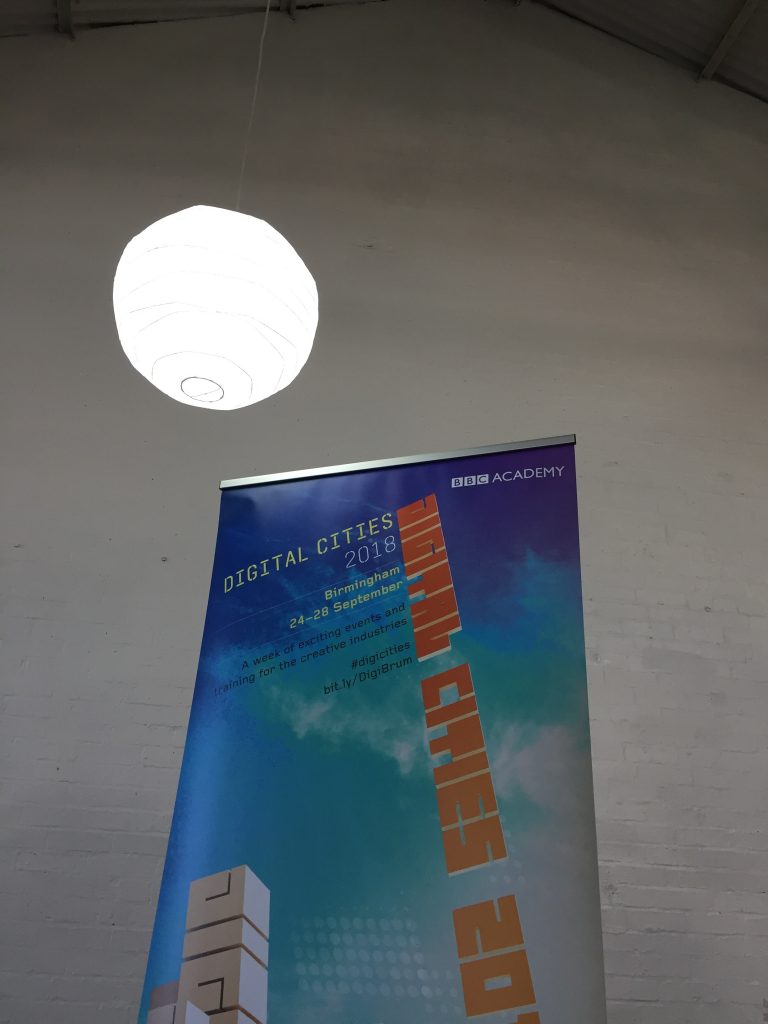Some tips on your marketing strategy and short-form storytelling

As well as training its own employees, the BBC Academy also shares its know-how with the general public through its website and its Digital Cities programme. I attended two workshops at its Birmingham event recently. Here are some tips from the sessions on digital marketing and short-form storytelling.
Google’s Digital Garage ran a session which looked at how to create a digital marketing strategy. The slides are here and are worth exploring. Google identifies content marketing as one of six digital marketing channels (the others are: search engine optimisation, search engine marketing, display marketing, social media marketing and email marketing).
Unlike other forms of digital marketing, content marketing is concerned with building relationships with customers and providing value to them. Not selling to them. The aim is for your customers to want to hear from you with useful, relevant and entertaining information. This kind of information helps build your audience too by appealing to people similar to your customers.
In order to create content that is useful, you need to really understand your customers and potential customers – who they are, their challenges, their likes and dislikes, when they like to look at stuff and how (which channel – email, Twitter, LinkedIn etc).
Once you have a feel for that, then you can start creating content that aligns with your business goals but is also useful for customers and customer wants and needs. The two have to go hand in hand, otherwise you’ll produce content that has little, if any, impact. Content marketing requires you to have goals, otherwise nothing happens. This quote from motivational speaker and author Zig Ziglar, which was shared in the session, neatly sums it up . . .
If you aim at nothing you will hit it every time
One example of how you might measure success could be: You’d like to grow sales by 20% over the next three months. The goal for your content marketing related to that might be to grow Facebook likes by 40%. Clearly, you will need to understand whether those extra likes will convert to business, but by gaining those likes with content marketing, you can then look to sell to them.
One stat that was shared that is worth taking note of is that 72% of people in UK buy on their mobile device. That means you need a mobile presence.
And if you want to get better at digital marketing, then consider doing some Google Digital Garage courses. There are 42 modules and you can gain a certification in digital marketing.
Lessons from short-form storytelling
You only have three seconds to hook the audience in short-form storytelling, according to the BBC team behind successful short-form content for BBC Three, Radio 1Xtra, Asian Network and BBC Music. The session discussed tips and tricks to make shorter (15 minutes or less) films compelling. The focus of the session was drama and comedy but there were some tips that could be used in content marketing.
To create something universal, you must pay attention to the specific. Characters can tap into universal themes such as mental health and poverty and explore them in ways that are specific to their context. Connecting with universal themes through stories or testimony is useful for content marketers. Why? Because humans connect emotionally with universal themes (climate change) and we connect with stories told though the eyes of individuals (a farmer’s loss of crops due to the unpredictable weather). Stories are a great way for individuals to create something that is universal and has a broad appeal. This is a useful frame through which to consider your content.
The three rules to live by when making short form content are:
- Economy – say maximum in fewest words possible – what stays in and out?
- Direction – the story needs to be going somewhere
- Purpose – every line needs to progress the story
And within the story, characters should express themselves in ways that are unique to them. This might be an attitude or a turn of phrase etc.
These tips resonate in the world of B2B communication. Less is more and what is communicated needs to take the viewer or reader from a starting point and on to a more informed place. There really isn’t much point in sharing interviews with people who don’t say much. And that’s true for B2B, comedy and drama.
Another important point is to front load your story because many viewers don’t make it to the end. That’s why news stories very quickly tell you what’s happened and why – it’s the who, what, where, when, why and how rule. Supporting details and quotes are secondary.
A couple of other tips: video on Facebook is shared considerably more than on YouTube, so use Facebook. But don’t embed Youtube videos in Facebook because Facebook will penalise you. Finally, make sure you adapt your content for the platform you are using. How giffable is your content?
- This article first appeared on our sister site Itsdevelopmental Ltd.

